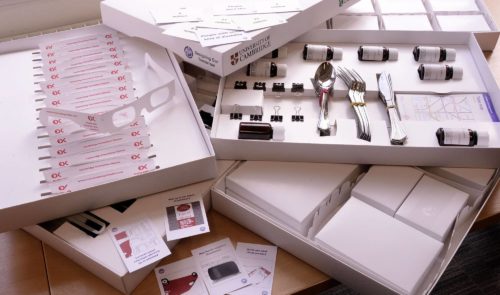
Researchers led by Peter Hutchinson and David Menon have developed innovative therapies and identified novel monitoring tools to target the management of intracranial pressure, breaking the vicious cycle of brain swelling.
Traumatic brain injury (TBI) refers to a complex range of brain damage resulting from transport accidents, falls, assaults and sports-related injuries. It is the most common cause of death under the age of 40 in high-income countries, with a million deaths each year globally. Approximately 50% of patients who are admitted to an Intensive Care Unit with TBI do not survive or are left severely disabled. Outcomes differ greatly between patients, given the range of head injuries, and so it has been extremely difficult to improve outcomes by linking particular characteristics to optimum treatments.
The team of researchers pioneered the development of individually-tailored 3D-printed titanium plates for skull reconstruction and designed special software that uses CT data of the patient’s skull to ensure a precise fit.
They launched an intensive care monitoring software, ICM+, to predict outcomes and deliver individualised treatments, and led international studies to assess novel treatments for TBI, including decompressive craniectomy (removal of a section of the skull to reduce intracranial pressure).
Their work has contributed to reducing the likelihood of dying from brain injury in the UK. Specifically, decompressive craniectomy is now used routinely in the UK and has saved 22 additional lives out of 100, with 60% of survivors independent at home.
The researchers have also led international, multidisciplinary efforts to characterise these problems and identify global strategies to address them. The NIHR Global Health Research Group on Neurotrauma they established brings together researchers from 11 low- and middle-income countries and three high-income countries to improve the management and outcome of TBI in resource-limited settings, including training to improve local care in Zambia and Myanmar.
Their discoveries have resulted in changes to clinical guidelines, routine practice, clinical training and public understanding of TBI. Ultimately, they have improved the management and health outcomes of patients with TBI worldwide.
“The ICM+ platform, perhaps uniquely, provides metrics that better enable us to match treatments to patients, allowing us to use precision medicine approaches in clinical ICU [Intensive care Unit] care following traumatic brain injury.”
– Neurointensivist, Maastricht University


